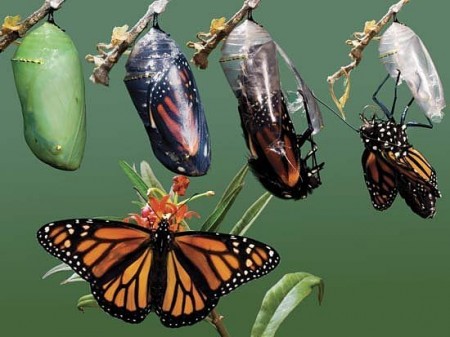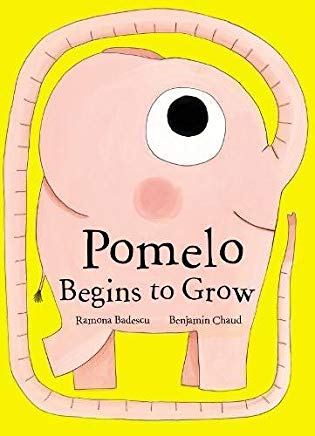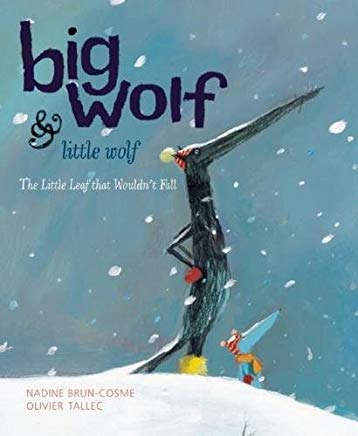The Blog
Blog Entry
Watch the Ripples Change Their Size But Never Leave the Stream

What do you want to be when you grow up? Wait: what are you now? Oh, a garden elephant? I thought I recognized that trunk from somewhere. And your friends? Those are… potatoes? Sorry, I have to ask: do you, maybe, come from France?
Ah, well then that would explain everything! And sometimes nothing, still what a pleasure it is to make your acquaintance – Pomelo, is it? – and all of your excitable kind.
Especially here in a story about the exhilarating possibilities of growing up, and growing wise, and moving on. Brand new to our shores, this book was originally published in 2010 by Albin Michel Jeunesse, 22 rue Huyghens, Paris, all of which is substantively irrelevant, I guess, unless you have visited that city and imagine you can picture such an address, or you haven’t and the information puts you in the mind of one of those French movies you only sort of understood. Pomelo is similarly transporting and enigmatic. This doesn’t always work. I have read French picture books where I was sure something got lost in translation. Here you sometimes wonder. Which seems only fitting about a process where almost everything risks getting lost in translation. Growing up is a scary, impossible miracle when you think about it: which parts of us survive, which vanish forever, and which are even traceable to the organisms we used to be? Really, this seems about the perfect marriage of subject and form. Because where better (where else?) but in picture books to reconnoiter across the furthest, lawless reaches of our imaginations? While we’re still young enough not to know better:
“All at once, Pomelo feels the super-hyper-extra force of the cosmos spreading through him. And maybe something even stronger than that!”
At least a fraction of that super-hyper-extra force appears to be propelling the writer here, Ramona Badescu (Romanian born) and the artist, Benjamin Chaud (reads the dust jacket: “He has illustrated an impressive number of picture books and has written at least one as well.”). In addition to those potatoes who throw mud cakes at one another, and lounge and climb on vines, and generally perform the role of chorus during all of Pomelo’s transformations, there is also a snail with googly, incredulous eyes, some kind of a semi-formed butterfly perching and fluttering around the edges, a rosy-cheeked ant, and a spider wearing boots who seems to owe something to Roald Dahl’s James and the Giant Peach. And those are trees flying by him – right? – on the page when Pomelo is wondering if “he has forgotten something along the way already,” an atom, a paramecium, and sections of the water cycle when Pomelo “has the feeling that he’s finally understood everything,” and a hovering, menacing teapot when Pomelo worries about confronting old fears. A teapot?
A teapot.
And sushi and asparagus tips decorating the future outside of Pomelo’s little garden, then a forest of towering mushrooms that grows eight inches from beginning to end. This is another of those rare tall books that doesn’t seem to fit anymore on American shelves (see Big Wolf and Little Wolf, The Leaf That Wouldn’t Fall), and yet all of the extra acreage here feels instantly essential – even when it sometimes goes unfilled. Makes you wonder what we’re missing. Makes Pomelo wonder too: after feverishly imagining all of the assembly that must be carrying on inside him where he cannot see it, he briefly worries about growing beyond the edges of the page. He cannot help himself either, and turns it “to see what comes next,” but there are plenty more surprises before the end. This comes not too suddenly that Pomelo, and Badescu, and Chaud haven’t been able to figure a couple of things out along the way, and the final pages are nowhere so glib – or so traumatic – as they might have been for taking their time. So long potatoes! So long Pomelo! What do you call a garden elephant in the wild?


